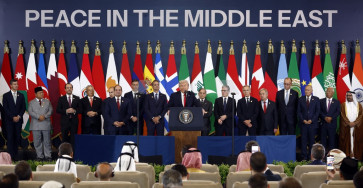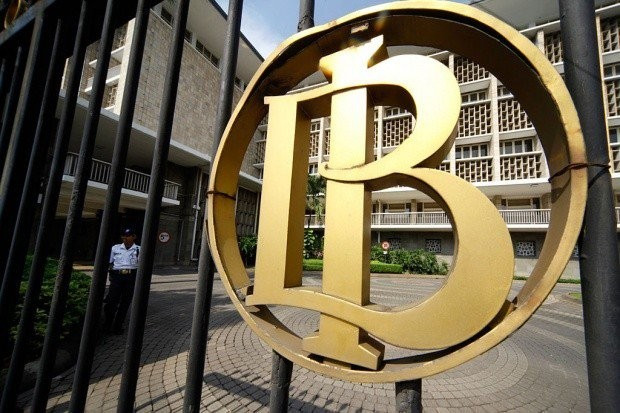Popular Reads
Top Results
Can't find what you're looking for?
View all search resultsPopular Reads
Top Results
Can't find what you're looking for?
View all search results'Project Fear' Campaign: Lessons from the EU referendum in the UK
Some have argued that the strategy of “scaremongering” chosen by David Cameron and the remain campaigners greatly contributed to the Brexit. Instead of providing a proper debate, they waved around threats to scare voters. Even before the formal campaign started, the voices of remain campaigners piled in to warn the British people about the nightmare of leaving the EU, whereas the good things of remaining were abandoned.
Change text size
Gift Premium Articles
to Anyone
T
he British public have just made an unprecedented decision to divorce themselves from the EU after a 43-year long relationship. One of the immediate consequences is that one of the leaders of the remain campaign, the UK Prime Minister David Cameron, has to resign. Cameron will officially leave 10 Downing Street in October.
The pledge made in the manifesto to hold an EU referendum has cost David Cameron his job and political career. Prior to Brexit, he has been recognized as one of the Tory’s greatest Prime Minister after Margaret Thatcher when the Conservative Party formed a majority government after the 2015 general election.
Some have argued that the strategy of “scaremongering” chosen by David Cameron and the remain campaigners greatly contributed to the Brexit. Instead of providing a proper debate, they waved around threats to scare voters. Even before the formal campaign started, the voices of remain campaigners piled in to warn the British people about the nightmare of leaving the EU, whereas the good things of remaining were abandoned.
The UK Treasury under George Osbourne scared the public that a Brexit would hit living standards, increase goods prices, decrease house prices and damage the UK’s gross domestic product significantly. The treasury even published an analysis that average households would be £4,300-a-year worse off and hundreds of thousands of jobs will be lost in the event of a Brexit.
Moreover, with the collaboration of former chancellor of the Labour Party, Alistair Darling, the Treasury continued frightening the British public by illustrating an austerity budget for the UK outside the EU. George Osbourne stated that the UK government would have to fill a £30 billion black hole in public finances in the event of a Brexit, by increasing income tax by £15 billion-a-year and cutting £15 billion of public spending.
The remain camp was also able to drag many independent institutions such as the Bank of England and IMF to scare voters. US President Barack Obama was also accused to have been influenced by Downing Street to famously say that Britain outside EU would be at the “back of the queue” in relation to free-trade agreement negotiations.
Furthermore, the public was frightened with the threat of terrorism in the event of a Brexit, in which the remain campaigners explained that Britain will lose the opportunity for collaboration and coordination with EU countries regarding safety and security in Europe.
The economic analysis and the illustrative “austerity budget” produced by the treasury were massively challenged by the public and the “Brexit” camp as baseless and lacking academic judgement. Some even directly pointed out that their analysis was based on lies. Even the Institute for Fiscal Studies (IFS), an independent research organization in the UK that is pro-EU, challenged the judgments made by the treasury and remain campaigners.
Actually, the “project fear” campaign has also been used by the Conservative Party in London’s recent mayoral election. Tory mayoral candidate Zac Goldsmith alleged that Sadiq Khan would not be tough on crime as he “provided cover for extremists”. Zac Goldsmith even explicitly stated that Sadiq Khan was unfit to protect the UK capital from a terrorist attack because of his link to Islamic extremists.
In addition, David Cameron openly attacked Sadiq Khan in the Prime Minister Questions (PMQs) in the House of Commons, in which Sadiq Khan was accused of having strong links with supporters of the Islamic State (IS) radical movement. In general, the Conservative Party wanted to send a message to Londoners in the mayoral campaign that Sadiq Khan’s faith was a threat to London.
Therefore, the campaign run by the Conservative Party during the mayoral campaign was widely regarded as divisive, outrageous, nasty and dog-whistling. This accusation was even made by Tories. The Tories even blamed Zac Goldsmith for specifically targeting Sadiq Khan’s Islamic faith. They explicitly said their candidate was racist and Islamophobic, and those were the main reasons he lost to Sadiq Khan, the first Muslim mayor of London.
It is important to highlight that “scaremongering” worked in the Scottish referendum back in September 2014, in which the United Kingdom managed not to fall apart. However, Brexit as the result of the latest “project fear” has ignited another fire within Scotland for the second referendum. Brexit has also triggered something deeper in Northern Ireland for Irish reunification.
Seeing that some voters have regretted voting “leave” and markets have crushed (British Stocks lost £125 billion), it can be said that the “project fear” campaign has resulted in a tragedy for the UK.
Lessons for Indonesia
The results of “project fear” in the UK provide many lessons including for Indonesia, which is the third largest democratic country in the world that has consistently been holding many general elections to select members of parliament, president, governors, mayors and regents. The lessons that should be learned from Great Britain’s experience is that better campaigning should happen in elections held in Indonesia.
Indonesia should learn not to launch “scaremongering” project in any elections. Proper debates based on factual and reliable information, analysis and judgement should be advocated. Lies, racism and focus on religion should be abandoned in order to provide a better election result that will not be regretted in the future.
In the case of the EU referendum in the UK, there were three crucial issues in which the British public were most concerned about including immigration, economics and free trade. As discussed earlier, instead of properly debating and scrutinizing the issues, the campaign was dominantly scaremongering through made-up facts.
Politicians in Indonesia should be able to pick up important issues and then engage the nation to properly scrutinize them.
Nonetheless, the most important of all is that voters in Indonesia should be more sensitive on how candidates and political parties run their campaigns. It is important to punish those candidates and political parties whose campaigns are based on lies, racism and hatred.
***
The writer is an alumni of the University of Dundee, UK, and currently a lecturer at Syiah Kuala University, Banda Aceh.
---------------
We are looking for information, opinions, and in-depth analysis from experts or scholars in a variety of fields. We choose articles based on facts or opinions about general news, as well as quality analysis and commentary about Indonesia or international events. Send your piece to community@jakpost.com.









